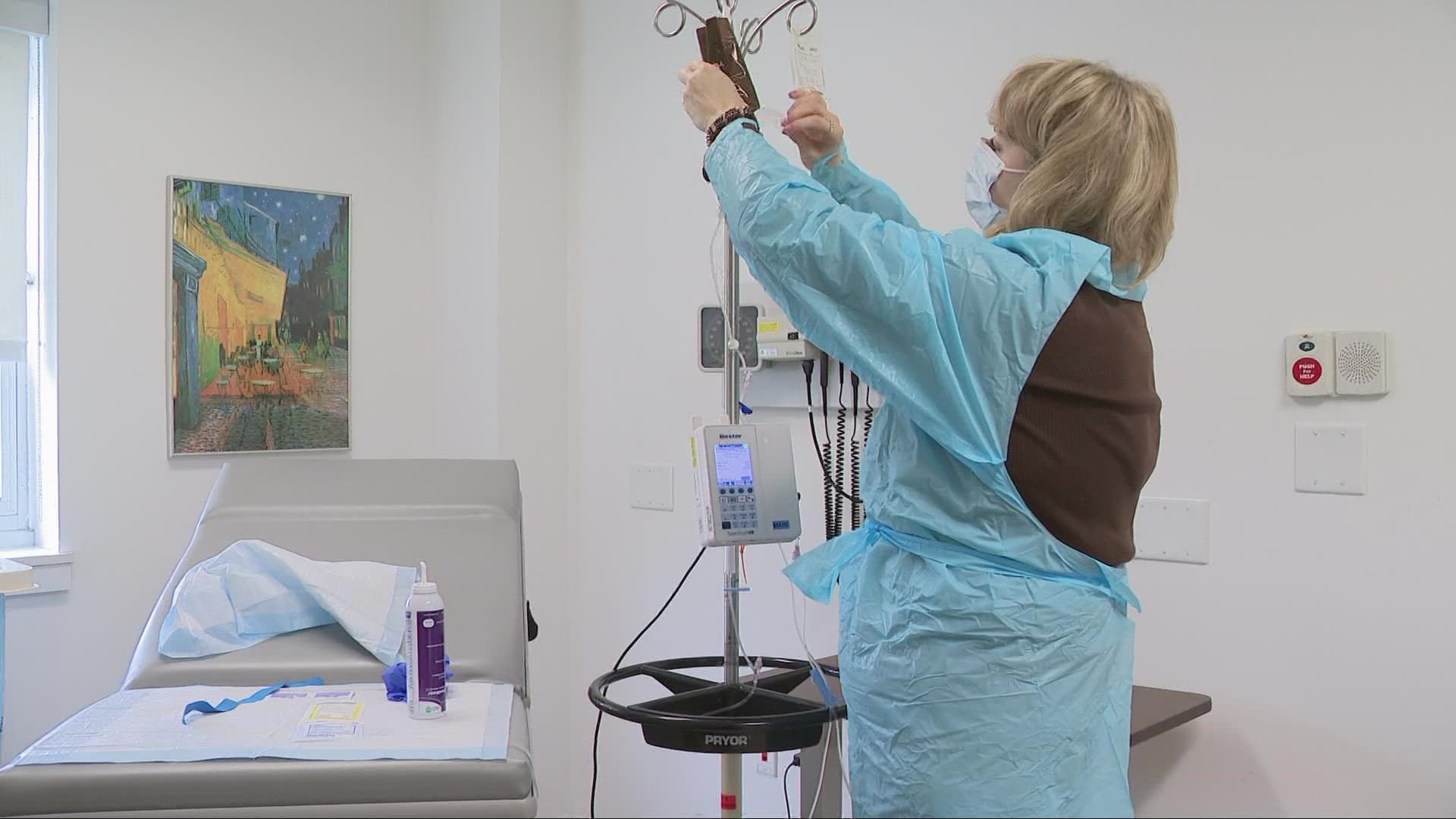CLEVELAND — Debra and Jerry Fair are high school sweethearts: Been together nearly 50 years, married 45.
At 62, Jerry looked forward to retirement, never thinking a disease would derail his plans.
"He came home from work and he was talking to me about how he was forgetting things at work," Debra remembers.
"It just kept getting more and more and more to the point where I was just standing there sometimes going, 'What am I supposed to do next?" Jerry said.
RELATED: WKYC's Health Hub
Jerry's memory issues forced him to leave his job, and in 2019, he learned why.: Alzheimer's disease.
"You realize right away when you hear that diagnosis that your retirement years are probably not going play out the way that you anticipated and that you planned," Debra said.
They found a ray of hope in a clinical trial for an experimental drug called Lecanemab. Jerry became the first patient enrolled in the clinical trial at Cleveland Clinic.
"I wanted to get into the trial," he told us, "not so much for me, but if this is going to help somebody else down the road."
Jerry didn't know early on if he was getting the actual drug or a placebo during his bi-weekly infusion appointments. Lecanemab works by reducing abnormal clumps of beta amyloid plaque on the brain, believed to be one of the toxic causes of Alzheimer's.
Preliminary results of Lecanemab showed it slowed cognitive and functional decline by 27%.
"But the group who received the medication decline was slower, and that can be interpreted to a better days of keeping your independence," Dr. Babak Tousi of the Cleveland Clinic Lou Ruvo Center for Brain Health said.
"My suspicion is that he has gotten the medication the whole entire time," Debra added. "I feel like with a diagnosis coming up on four years ago, we would have seen more of a decline than what we're seeing right now."
Eight months ago, Jerry began getting the actual drug. He can still drive, but chooses not to. He and Debra compete with trivia and word game apps to keep his mind focused, and Baxter, their giant Bernese Mountain Dog, demands much of Jerry's attention.
They're grateful for the good days, but now 66, Jerry worries for the future and his high school sweetheart.
"The biggest thing for me is forgetting my Debby," he says, fighting back back tears.
"We know what's coming, but it really doesn't do us any good to think about what's coming," Debra explained. "We have to really focus on what we have right now."
Jerry looks at her smiling and says, "Why ruin today thinking about tomorrow?"
So far, one death has been reported in the Lecanemab trial. The patient had bleeding and swelling of the brain, and it's still being investigated as to whether the drug played a role in the death. The patient had been on blood thinners and had several other health problems, but no medication is without risk.
Dr. Tousi says. Lecanemab manufacturers Eisia and Biogen have applied to the FDA for accelerated approval. The FDA decision deadline is Jan. 6, and if they sign off, the companies will seek full approval. If they get it, the drug could potentially be available to those with early onset Alzheimer's disease by the end of next year. Full approval is required before it could be covered by Medicare or other commercial insurance.
The Alzheimer's Clinical Trials conference will take place Nov. 29 in San Francisco, where we will learn updates on other medications being tested. Tousi expects at least three promising new medications in the next few years.
However, today we learned another experimental drug from Genentech/Roche called Gantenerumab failed in clinical trials to slow cognitive decline.

